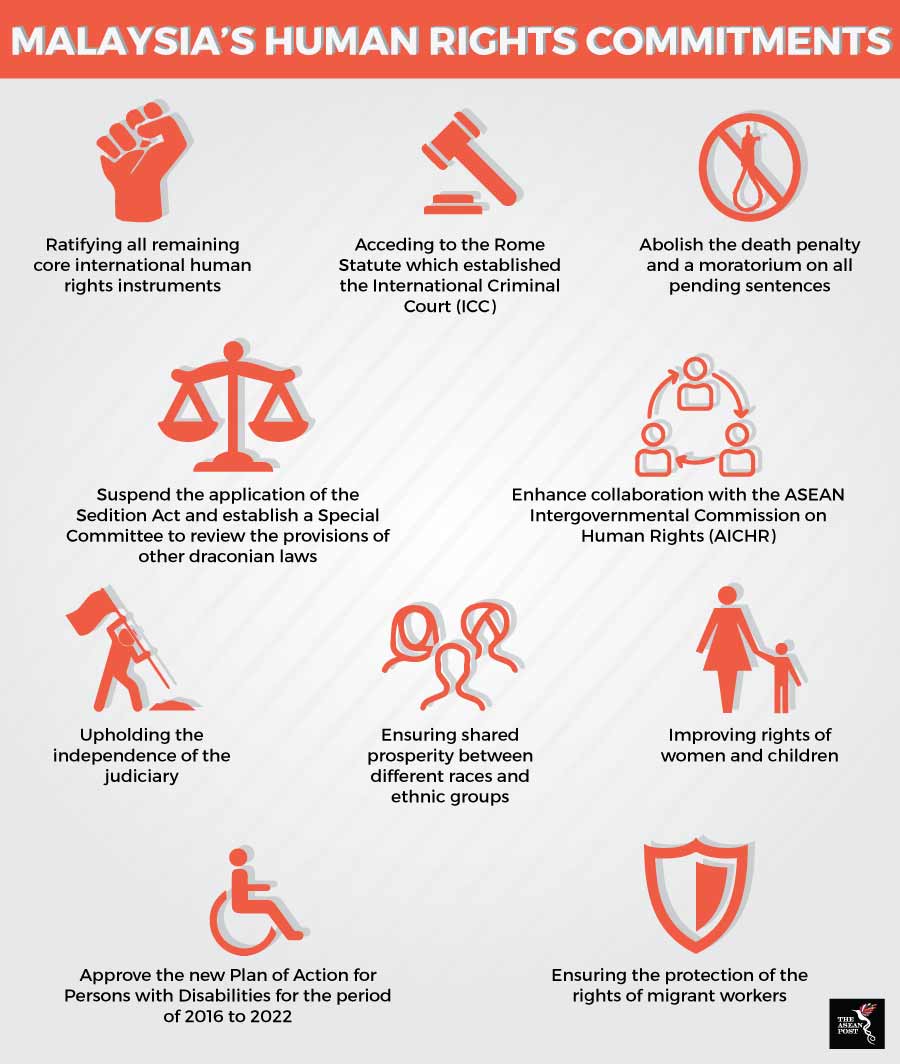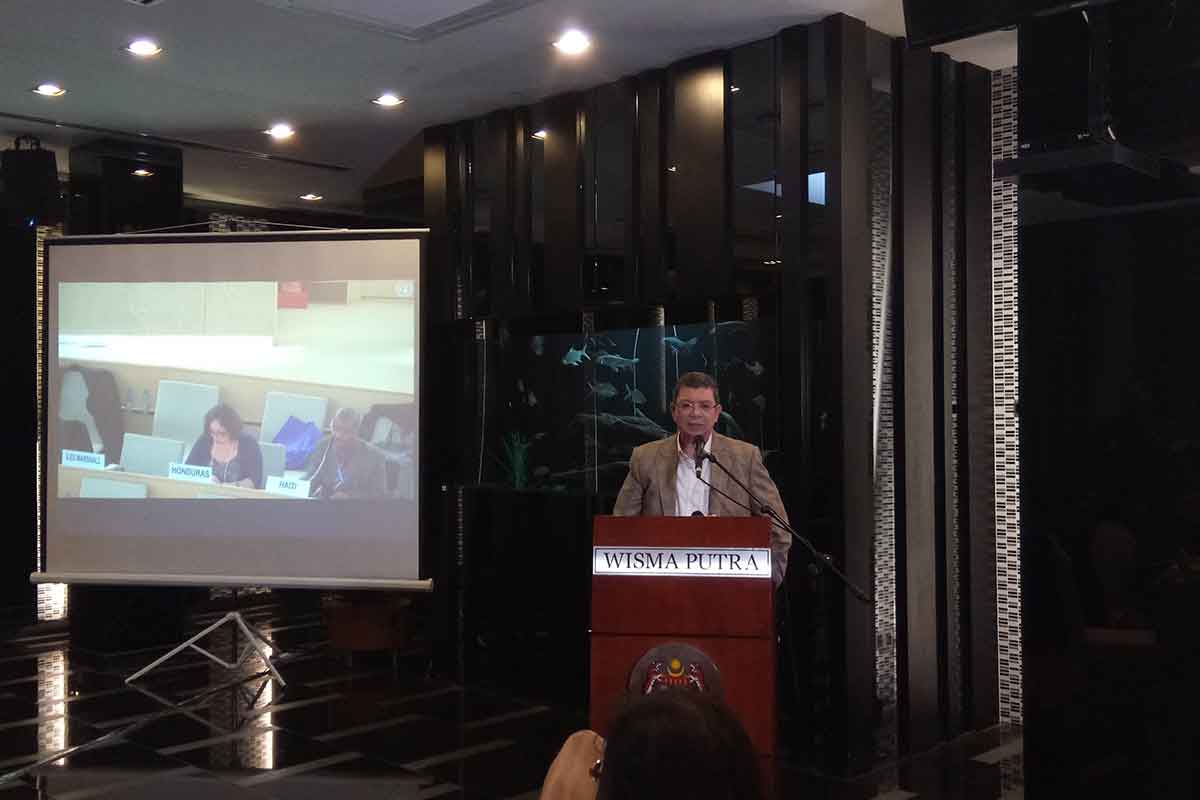Last week, Malaysia presented its report for the 3rd cycle of the Universal Periodic Review (UPR) at Geneva, Switzerland.
Among the more pertinent highlights of the report was the government’s commitment to ratify the remaining six international human right instruments including the International Convention on Elimination of Racial Discrimination (ICERD) which has received severe backlash from the Malay conservative segments of Malaysian society.
Their concerns were that the signing of the ICERD would mark the loss of the privileges enshrined in the Federal Constitution for ethnic Malays granted under the New Economic Policy, an affirmative action policy.
Nevertheless, the government of Malaysia has taken the bold yet cautious stance to ratify the convention although its Foreign Minister, Saifuddin Abdullah maintains that his ministry wouldn’t rush the ascensions of the treaties.
“We will begin with the less sensitive conventions and leave ICERD for later,” he said in a speech to members of his ministry and the press during the live stream of the UPR in the nation’s administrative capital of Putrajaya.
Nevertheless, Saifuddin also hit out at critics of ICERD for manipulating the struggle of the Malay community in their attempts to be “Malay heroes.”
“If you want to be a Malay hero, this is not the place. Focus on other aspects like education or entrepreneurship development,” he said.
“Islam also condones human rights and the human rights struggle does contain elements of Islamic values,” he added in rebuke to the Islamist lobby in the country who have chastised ICERD as being against Islamic principles.
The path towards normalising the struggle of human rights will take a considerable amount of time given that the previous administration had often painted it in a bad light. Under the previous government, many human rights defenders were jailed and silenced under nefarious laws like the Sedition Act.
Race relations has always been a tricky conundrum especially when out in the public sphere. As such, it is understandable if the new government makes several missteps along the way. But that doesn’t mean that it should be swept under the rug.

Source: Ministry of Foreign Affairs Malaysia
When answering questions and recommendations on lesbian, gay, bisexual, and transgender (LGBT) rights and women development, the Malaysian response was uninspiringly frail. The ministerial representative refused to accept female circumcision as female genital mutilation (FGM) and provided a static answer to the issue of LGBT discrimination by citing a provision in the Federal Constitution which states that there should be no discrimination based on one’s gender.
Moving forward, Malaysia has expressed its intentions to undertake the UPR for this cycle and beyond by introducing three steps it is committed to take.
First, the government intends to relook recommendations made in previous UPRs accepted by the former administration. It will also conduct half-yearly reviews to keep track of the progress on implementation although the cycle commences every five years. Finally, it will work to institutionalise collaboration and engagement with national human rights institution and other civil society stakeholders.
A new international role
Under Saifuddin’s leadership, Malaysia aims to carve a new role for itself in the international fora by being more proactive in matters of global concern with human rights being one such area of focus. He reiterated that the country must become a force for good internationally in order to shape global discourse and influence decisions that would have widespread repercussions.
“When we play, we play for the World Cup, not to be jaguh kampung (village champion),” he quipped, in reference to a term often used when Malaysians can only show their prowess locally but fail on the international stage.
“Times have changed and we must help shape contemporary issues,” he remarked. “Malaysia cannot be a bystander. We must play a proactive role while understanding cultural nuances.”
Malaysia is an active proponent of multilateral diplomacy and has played an especially important role in regional initiatives under the umbrella of the Association of Southeast Asian Nations (ASEAN).
The Southeast Asian state has always been a staunch advocate for peace and has been involved in conflict-resolution negotiations in southern Thailand and southern Philippines. It is also committed to seeking a peaceful solution for the Israel-Palestine conflict and fostering Islamic unity, underpinned by principles of moderation.
Related articles:
The road ahead for New Malaysia
